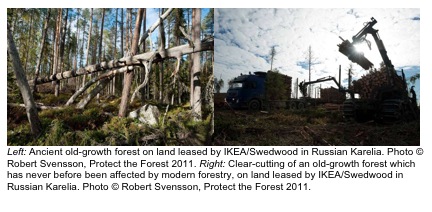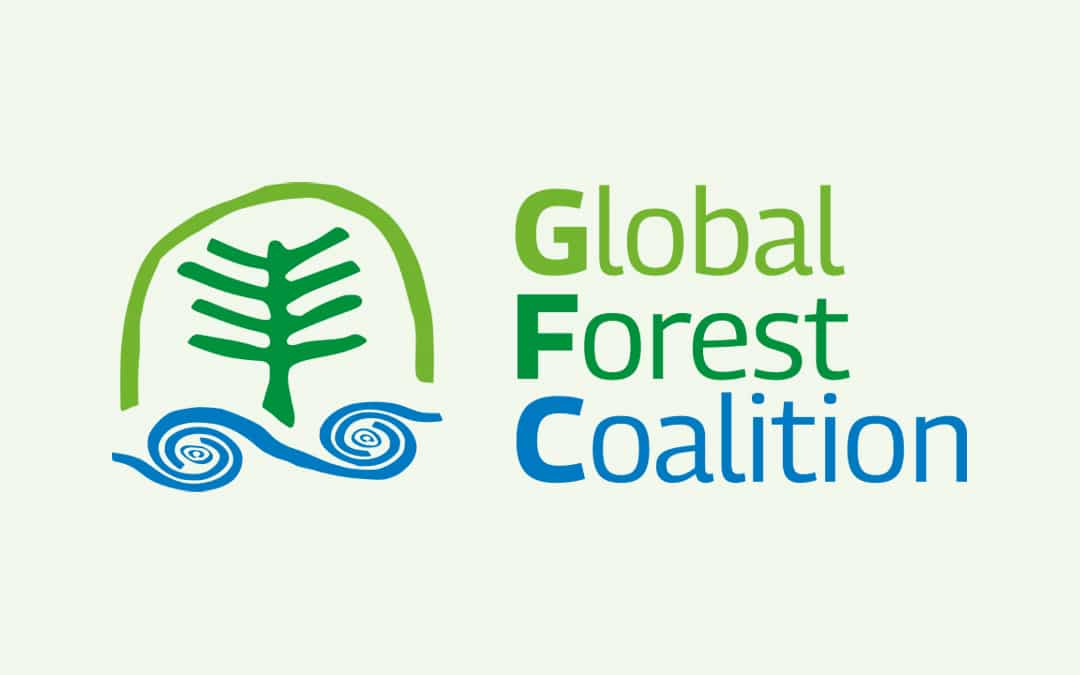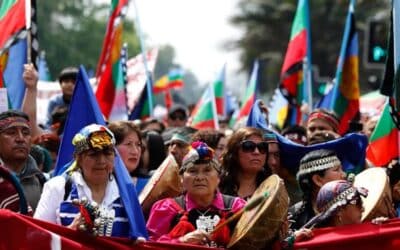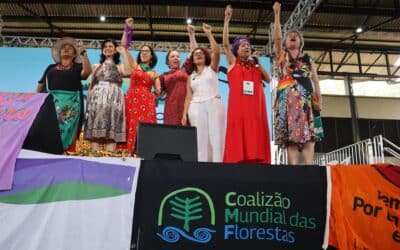The Swedish-owned international furniture retailer, IKEA, is logging old-growth forests and other high conservation value forests in Russian Karelia[1] through its subsidiary Swedwood. A petition has been launched by Swedish NGO Protect the Forest to help change IKEA and Swedwood’s destructive ways. Now other environmental organizations from all over the world are also expressing their concern and outrage.

The Global Forest Coalition (an alliance of NGOs with members in more than 40 countries) strongly condemns IKEA’s forest destruction activities in Russia. Swedish NGO Protect the Forest, a Global Forest Coalition member, and Russian environmental organization SPOK, conducted a field inspection in Russian Karelia, which revealed that IKEA’s wholly-owned subsidiary Swedwood had clear-cut forests with high biodiversity value and very old trees.
Swedwood is certified by the Forest Stewardship Council (FSC), which claims to ensure ‘responsibly managed forests’. «The company NEPCon, which certifies that Swedwood’s forestry complies with FSC standards, allows the logging of trees which are 200-600 years old,” said Linda Ellegaard Nordström, board member of Protect the Forest. “This is nothing but a scandal!”.
IKEA is also not paying enough attention to the social impacts of their logging activities in Russian Karelia. A lack of dialogue and low wages are some of the problems. According to Andrei Laletin of Friends of the Siberian Forests, Global Forest Coalition focal point in Russia, «It is very sad that forests that have taken centuries to mature can be lost in a few days. Thanks to IKEA’s promotion of the mass-consumption of cheap timber products, people’s appreciation of the true value of old forests is being undermined, and this threatens the rights of future generations to enjoy the benefits of our forest heritage.»
Wally Menne of the Timberwatch Coalition in South Africa, added: «The heavily green-washed ‘Swedish forestry model’, which promotes the destructive practice of logging old-growth forests, and replacement with monoculture tree plantations, is causing serious damage to forest ecosystems in many different countries. This leads to increased biodiversity loss, greater flooding and soil erosion, accelerated climate change, and also impacts severely on local communities whose wellbeing depends on healthy intact forests.”
Speaking for the Global Forest Coalition, the Executive Director, Simone Lovera, stated: «Whoever is responsible for this destruction, in this case the owners of IKEA and Swedwood, must be held responsible for the social and environmental costs of their companies’ actions. I suggest Protect the Forest and SPOK should consider all possible options, including legal action against IKEA, in order to correct the situation.»
The Protect the Forest petition is addressed to the management of IKEA and Swedwood, with five demands for a more trustworthy IKEA. Anyone wanting to protest IKEA’s logging of old-growth forest is invited to sign the petition. Read more about the campaign and the petition at www.protecttheforest.se/ikea/en
Free press photos of Swedwood’s controversial loggings in Russian Karelia can be found here: http://www.protecttheforest.se/ikea/en/photographic-evidence
IKEA’s reply to Protect the Forest’s criticism can be found here
Examples of forest loggings in other parts of the world:
Clear-felling threatens the already decimated forests of Tasmania in order to produce wood chips. See http://www.wilderness.org.au/regions/tasmania/tasmanias-irreplaceable-forests
Veracel, a joint venture between the Swedish-Finnish company Stora Enso and Brazilian-Norwegian Aracruz, obtains forest land in Brasil for planting monocultures of eucalyptus and builds polluting pulp mills. See http://www.wrm.org.uy/bulletin/67/Brazil.html
Read more about the underlying causes of forest loss and market-based conservation here:
https://globalforestcoalition.org/resources/underlying-causes-of-forest-loss
https://globalforestcoalition.org/resources/market-based-conservation
For more information, contact:
Isis K. Alvarez, Outreach and Communications Officer, Global Forest Coalition, (www.globalforestcoalition.org), Phone: +1 305-319 1990, +57 315 6484656 (can be reached on this number from June 5, 2012 and on), isis.alvarez@globalforestcoalition.org
Simone Lovera, Executive Director, Global Forest Coalition (www.globalforestcoalition.org), Phone: +31-6-15345379, simone.lovera@globalforestcoalition.org
Wally Menne, Timberwatch (www.timberwatch.org) – Global Forest Coalition NGO focal point in Africa, Phone: +27 82 444 2083, timberwatch@iafrica.com
Linda Ellegaard Nordström, Board Member of Protect the Forest (www.protecttheforest.se), Phone: +46 70 2541148, linda.nordstrom@skyddaskogen.se
[1] Karelia is located in the northwestern part of Russia, bordering to Finland in the west.




